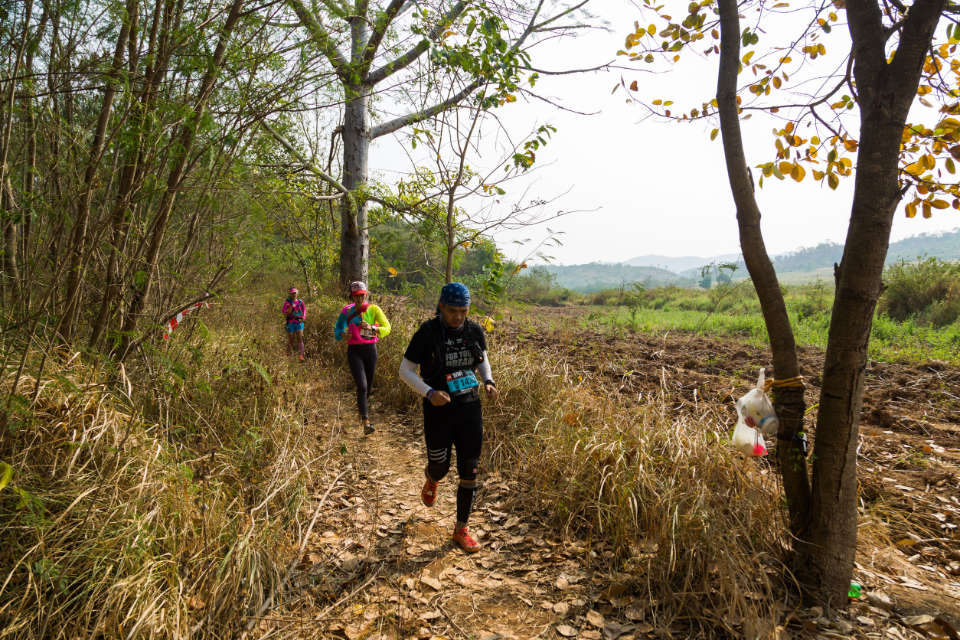It’s that time again: You’ve accomplished all or most of the New Year’s resolutions you made a year ago and your gut tells you that you need to up your game in the year ahead. Making a decision to run a 50km, 100km or a more punishing distance is well and good, but don’t let your enthusiasm override your instinct for self-preservation.
How should you approach an ultra? With respect to your body and mind and a promise to do what it takes to prepare so you don’t jeopardise your mind or body—no matter how young and healthy you may be.
It’s all about your attitude
Of course, your mind plays a pivotal role in your approach to running a daunting race—just as it plays a pivotal role in sex! Acknowledging that long-distance runs are nothing like the 10km or 21km you’ve historically chosen over time begins your mental journey.
Some ultra-runners look upon their long-distance challenges as they do a formidable opponent, with respect and reverence. After all, weather, terrain, time and other circumstances conspire against even the most skilled athlete.
What can happen to you if you don’t approach an ultra with the respect it deserves? Ask top ultra runner Max King who confesses: He went into his first long-distance run in a cocky state of mind, ill-prepared in terms of nutritional, pacing and training protocols that could have given him the edge he needed to finish his race. Don’t follow in his footsteps—unless you are looking for sympathy rather than a finisher’s medal!

Feed your body and your mind
Adjust the training rituals you usually follow when you’re preparing for a regular marathon. Ultras are all about endurance. You need a long-term training plan that should start earlier than the one you traditionally employ—one that requires you to add back-to-back long runs as you approach the big day as well as revising your cross-training and conditioning habits to suit conditions you’ll encounter as the kilometres conspire to deplete your energy.
Further, don’t assume that because you follow all of the rules you will come out at the finish line unscathed after your first 50km or 100km. If that happens, we want to hear from you because you’ve achieved the impossible and we may want to build a statue or shrine in your name!
It’s okay to make commitments and promises to yourself. But if you’re the type who beats yourself up when you don’t do things perfectly, get your head on straight before investing time and commitment required to get you to your goal.

7 Strategies for getting to the finish line
Having set your mind to finish the race without getting injured, your new reality requires you to undertake the following preparation:
1. Prioritise pace over speed.
Having acknowledged the fact that ultras are endurance experiences, recognize the importance of running slow at times during your training odyssey if you don’t want to kill yourself. Yes, you may encounter race finish cut-off times, but if you pace yourself properly from start to finish as central to your overall training plan, your chances of success are excellent.
2. Go the distance.
Literally. If your training schedule doesn’t include extended runs of at least 23 miles (if possible, 32 miles), your body could experience shell-shock early in your race. Further, don’t run nude. If you’re not packing survival supplies (e.g., food, water, socks, lubricants and first aid supplies), you may not have what it takes to keep up with competitors.
You’ll want to estimate the amount of time it takes to complete your long-distance run. Rule of thumb? Double or triple your standard marathon completion time and add two hours for good measure.

3. Make hydration your priority.
If you’ve never experienced extreme physical reactions to pushing your body to the max, you’re lucky. Cramps, vomiting, diarrhoea and fainting have sidelined well-prepared athletes during extra-distance runs, perhaps because they failed to hydrate and/or glucose- and electrolyte-load.
Replenishing your system’s fluids isn’t an option, warns Aria Running blog writer Mihai Voinea. He learned the hard way about the amount of damage an ultra can do to the system despite adequate preparation.
4. Change up your pace.
Having committed to increasing your mileage to build stamina, carrying appropriate supplies and achieving the right mindset, get into the habit of mixing periods of running with periods of walking when training for your long distance run.
For reasons nobody can explain, some runners have been led to believe that walking is contraindicated—this is, after all, a race. In truth, it’s only by interspersing walking with running that victory over long distances can be achieved.
5. Know where you’re going.
Of course, you know where you’re going. But have you consulted a terrain map so you know exactly what you’ll encounter on the ground during your race? You may be required to climb, descend, traverse trails, deal with water, sand and/or other terrains that have the potential to be less than hospitable to those who expect flat terrain.
In fact, adding training time on diverse surfaces can be invaluable. It could be the factor that gets you to that finish line against all odds.

6. Shop until you drop.
Okay, that’s not necessary—but you do have to acquire a proper mix of supplies designed to fortify you for the long haul. The right fanny pack can save your life if it’s unobtrusive and light yet holds a wealth of liquids, foods, first aid supplies and weather-related accessories that sustain you from start to finish. A lightweight hat or cap, fold-down poncho and GPS device may be nothing short of invaluable.
7. Prepare in advance for The Wall.
It’s going to stop you in your tracks or slow you down so dramatically, you could feel as though you’re in a trance—but you’re not. You’re likely at the quintessential 30- or 40-mile point that befalls all long-distance marathoners (yes, even the big stars).
Understand it. Feel it. Deal with it. Walk slowly. Attend to your energy and hydration needs. Keep going, even if you must declare aloud, “I prepared for this and I will keep going.” Then focus your mind on recovering properly since you’ve already done the hard work!
In your opinion, does it take a special sort of person to tackle and complete a long distance run or can anyone do it if they prepare properly?





